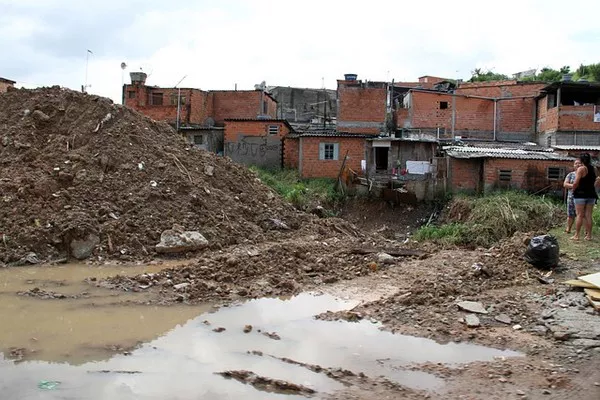Sewage is a byproduct of human activity that, if not adequately managed, poses significant threats to both the environment and public health. This article explores the harmful effects of sewage, including its impact on water bodies, ecosystems, and human well-being. Through an in-depth analysis of the pollutants present in sewage, the consequences of improper wastewater treatment, and the emerging challenges of sewage management, this article emphasizes the urgent need for sustainable and innovative solutions to safeguard our planet and human populations.
Sewage, a complex mixture of domestic, industrial, and commercial waste, contains a wide array of contaminants that can be detrimental to our environment and health. Inadequate sewage treatment, combined with population growth and urbanization, has intensified these negative effects. This article delves into the harmful consequences of sewage and highlights the importance of implementing efficient wastewater management practices.
Environmental Impacts:
1. Water Pollution:
Untreated sewage discharges contain a myriad of pollutants, including nutrients (nitrogen and phosphorus), pathogens, heavy metals, organic compounds, and pharmaceuticals. These pollutants contaminate water bodies, leading to eutrophication, algal blooms, and reduced dissolved oxygen levels, threatening aquatic life and biodiversity.
2. Marine Ecosystem Damage:
When sewage effluent reaches coastal areas, it can have devastating effects on marine ecosystems. Nutrient-rich sewage encourages the proliferation of harmful algal blooms, leading to “dead zones” where oxygen levels are too low to support marine life. The death of marine species disrupts food chains, affecting fisheries and coastal economies.
3. Habitat Destruction:
Sewage pollution not only affects aquatic life but also poses risks to terrestrial ecosystems. When untreated sewage seeps into soils and groundwater, it can harm plant life, disrupt ecosystems, and contaminate water sources relied upon by various species.
Public Health Implications:
1. Waterborne Diseases:
Perhaps the most significant public health concern related to sewage is the transmission of waterborne diseases. Pathogens such as bacteria, viruses, and parasites from human waste can contaminate drinking water sources, causing outbreaks of cholera, dysentery, hepatitis, and other deadly diseases, especially in regions with poor sanitation infrastructure.
2. Food Chain Contamination:
Sewage-contaminated water used for irrigation and agriculture can result in the accumulation of harmful substances in crops, leading to the ingestion of pollutants through the food chain. This poses a serious risk to human health, potentially causing long-term health issues.
Inadequate Wastewater Treatment:
One of the main contributors to sewage-related issues is the inadequate treatment of wastewater. Many regions lack proper sanitation facilities, leading to direct discharge of raw sewage into water bodies or poorly managed septic systems. Additionally, aging infrastructure and insufficient funding for maintenance exacerbate the problem.
Emerging Challenges in Sewage Management:
1. Urbanization and Population Growth:
As the global population continues to rise, particularly in urban areas, the volume of sewage generated increases significantly. This puts immense pressure on existing sewage treatment facilities and necessitates the development of more sustainable and scalable solutions.
2. Emerging Contaminants:
The presence of emerging contaminants, such as pharmaceuticals, personal care products, and microplastics, in sewage has become a growing concern. These pollutants often evade conventional treatment processes and can have unknown long-term effects on human health and the environment.
3. Climate Change:
Climate change exacerbates the impacts of sewage pollution. Rising sea levels and increased rainfall intensify the risks of sewage overflow and flooding, further polluting water bodies and increasing the likelihood of disease transmission.
Sustainable Solutions:
1. Improved Sewage Treatment:
Investing in advanced sewage treatment technologies, such as membrane filtration, ultraviolet disinfection, and anaerobic digestion, can significantly reduce the levels of pollutants in wastewater. Implementing better treatment practices ensures cleaner effluent and less harm to the environment and public health.
2. Decentralized Systems:
Promoting decentralized sewage treatment systems can alleviate the burden on centralized facilities and help improve sewage management in smaller communities. Technologies like constructed wetlands and biodigesters offer cost-effective and environmentally friendly solutions.
3. Public Awareness and Education:
Educating communities about the importance of proper sewage disposal and the consequences of improper waste management can foster responsible behavior and reduce sewage pollution at its source.
4. Policy and Regulation:
Stringent policies and regulations are essential to enforce proper sewage treatment and disposal practices. Governments must prioritize wastewater management, invest in infrastructure upgrades, and penalize non-compliant entities to ensure a cleaner future.
Conclusion:
The harmful effects of sewage are undeniable, posing significant threats to both the environment and public health. Addressing this issue requires a holistic approach, combining advanced sewage treatment technologies, sustainable practices, public awareness, and supportive policies. By acting now, we can protect our water bodies, ecosystems, and the well-being of present and future generations, creating a cleaner and healthier world for all.

